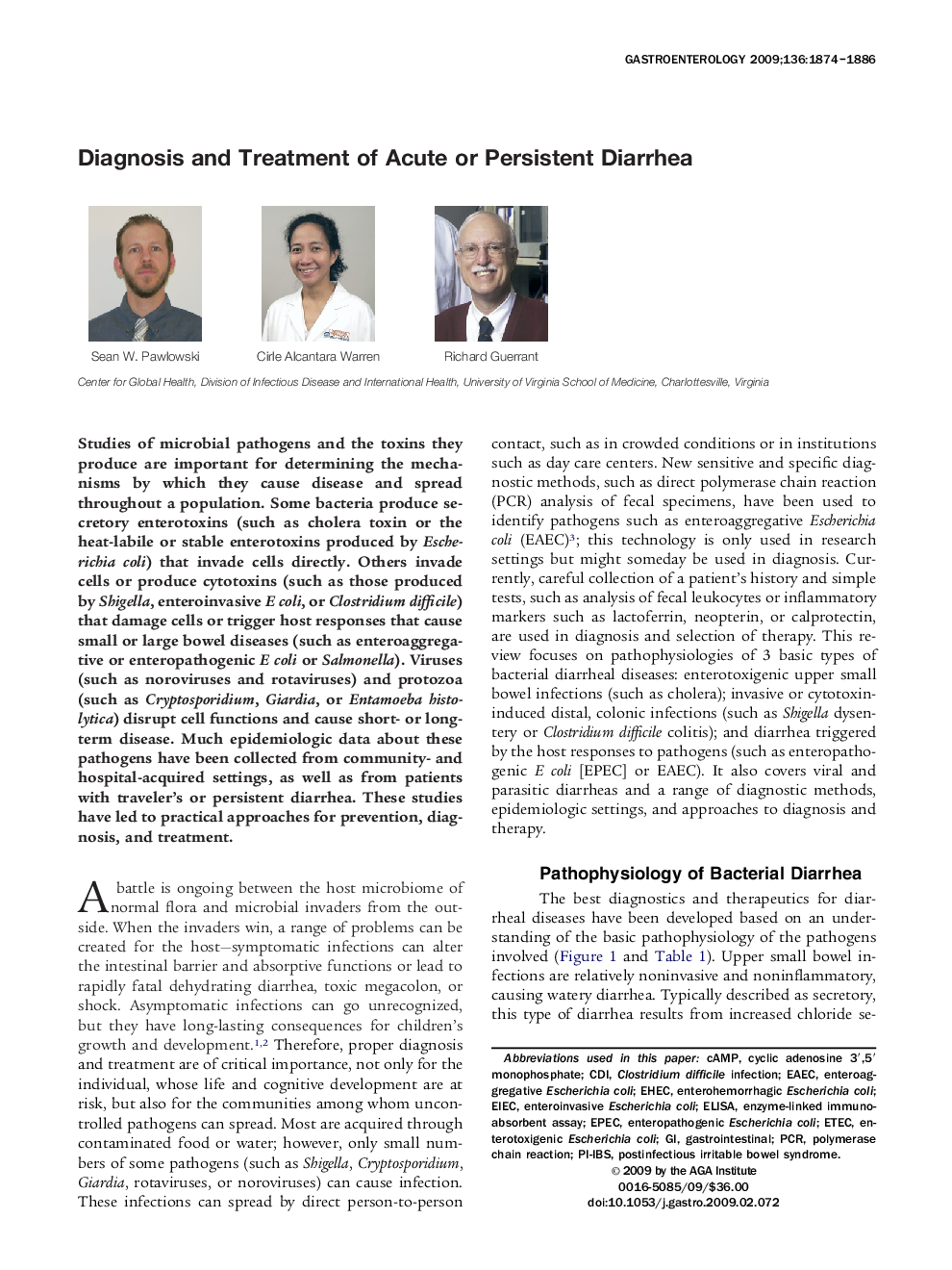| Article ID | Journal | Published Year | Pages | File Type |
|---|---|---|---|---|
| 3295630 | Gastroenterology | 2009 | 13 Pages |
Studies of microbial pathogens and the toxins they produce are important for determining the mechanisms by which they cause disease and spread throughout a population. Some bacteria produce secretory enterotoxins (such as cholera toxin or the heat-labile or stable enterotoxins produced by Escherichia coli) that invade cells directly. Others invade cells or produce cytotoxins (such as those produced by Shigella, enteroinvasive E coli, or Clostridium difficile) that damage cells or trigger host responses that cause small or large bowel diseases (such as enteroaggregative or enteropathogenic E coli or Salmonella). Viruses (such as noroviruses and rotaviruses) and protozoa (such as Cryptosporidium, Giardia, or Entamoeba histolytica) disrupt cell functions and cause short- or long-term disease. Much epidemiologic data about these pathogens have been collected from community- and hospital-acquired settings, as well as from patients with traveler's or persistent diarrhea. These studies have led to practical approaches for prevention, diagnosis, and treatment.
